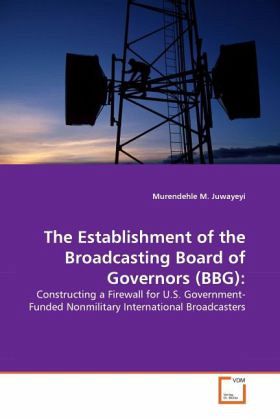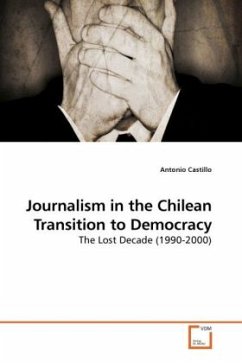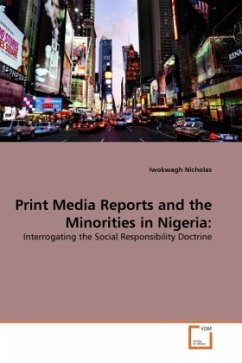
The Establishment of the Broadcasting Board of Governors (BBG):
Constructing a Firewall for U.S. Government-Funded Nonmilitary International Broadcasters
Versandkostenfrei!
Versandfertig in 6-10 Tagen
39,99 €
inkl. MwSt.

PAYBACK Punkte
20 °P sammeln!
This study examines why the U.S. government established the BBG firewall over civilian international broadcasters and shifted its policy from exercising editorial control over the broadcasters to granting them professional independence after the end of the Cold War. As part of the examination, the study shows how the BBG firewall is unique in comparison with previous entities that governed the broadcasters during the Cold War the USIA, the BIB and the Board for Radio Broadcasting to Cuba. The study also shows how the BBG firewall is unique even in comparison with the Corporation for Public Bro...
This study examines why the U.S. government established the BBG firewall over civilian international broadcasters and shifted its policy from exercising editorial control over the broadcasters to granting them professional independence after the end of the Cold War. As part of the examination, the study shows how the BBG firewall is unique in comparison with previous entities that governed the broadcasters during the Cold War the USIA, the BIB and the Board for Radio Broadcasting to Cuba. The study also shows how the BBG firewall is unique even in comparison with the Corporation for Public Broadcasting (CPB) that governs public broadcasters and acts as a firewall for them. Legally, the study considers whether the government was obligated to give the broadcasters professional independence by establishing the BBG firewall. In the final analysis, the study discusses how lawmakers wanted the firewall to function to protect the professional independence of the broadcasters and to ensure their credibility.












